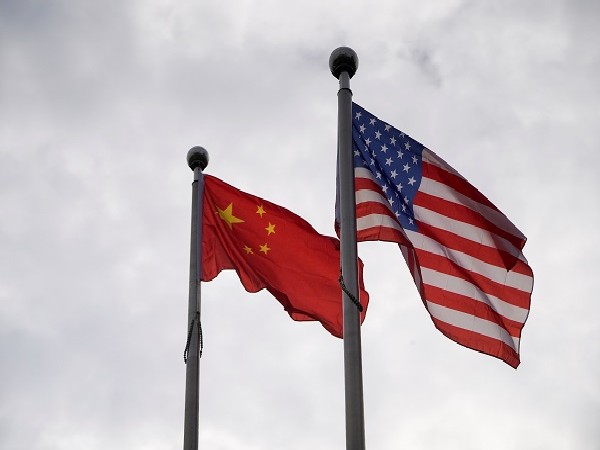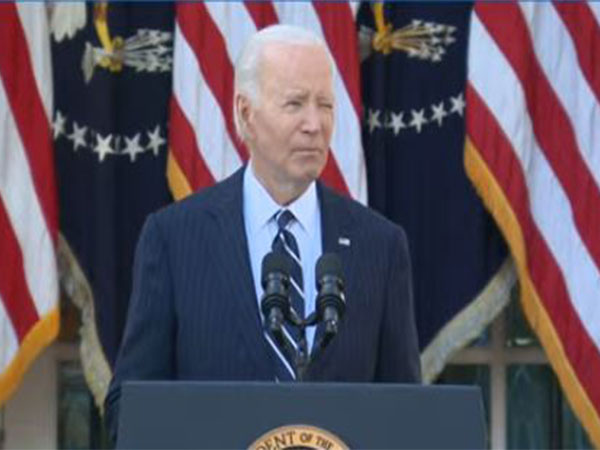Washington [US], August 17 (ANI): US lawmakers introduced the Fighting Illicit Goods, Helping Trustworthy Importers and Netting Gains (FIGHTING) for America Act to scrutinize Chinese goods entering the US through customs loopholes.
The bill aims to stop the flow of illicit goods, including fentanyl, counterfeits, and products made with forced labour, by tightening import requirements for low-value packages known as de minimis entry, read a statement from the US Senate Committee on Finance (USSCF).
The US senators claim that Chinese companies are manipulating tariff laws designed to protect goods made using Uyghur forced labour from entering the US economy.
The bill was introduced by US Senator Ron Wyden, Cynthia Lummis, Sherrod Brown, Susan Collins, R-Maine, and Bob Casey.
The de minimis system currently exempts parcel shipments valued at USD 800 or less from duties and taxes, but lawmakers claim Chinese companies are manipulating this to avoid paying tariffs and evade trade penalties.
The legislation would improve oversight of the de minimis entry process, increase penalties for bad actors, and level the playing field for US manufacturers and workers.
According to the statement report, the de minimis system exempts parcel shipments valued at USD 800 or less from duties and taxes, allowing consumers to receive goods faster and cheaper. As the volume of packages increased, the CBP has struggled to effectively target and separate packages containing questioned goods from violating US law.
“Foreign corporate giants are inundating our borders with millions of low-value packages, making it tough for customs agents to stop dangerous goods like fentanyl from falling into Americans’ hands. Americans should feel confident that anything arriving on their doorstep is safe, legal, and ethically produced. Our legislation would crack down on foreign companies abusing the law and make sure they play by the rules,” US lawmaker Ron Wyden said.
Another US lawmaker Lummis stated, “Whether through the southwest border or in packages mailed into the United States, China is using any tool available to get illicit drugs across our border. It is time for CBP to crack down on shipments from China to ensure drugs and products made using slave labour are encountered before making it into our communities.”
The legislation would ensure that Chinese corporate giants cannot use the de minimis process to avoid paying tariffs on textiles, shoes and apparel or evade trade penalties imposed because of Chinese trade cheating.
Additionally, the reduction in the overall volume of low-value packages through de minimis ways would lower carbon emissions, promote enforcement of US trade laws, and level the playing field for US manufacturers and workers.
The legislation would also improve oversight of the de minimis entry process by requiring CBP to collect more information about commercial packages, facilitating the targeting and seizure of illicit goods, and increasing penalties for bad actors the statement by the USSCF.
Kim Glas the president of the National Council of Textile Organizations said, “We fully support the legislation as a strong step toward addressing this glaring loophole, which facilitates 4 million packages a day that bypass federal scrutiny and enter the US duty-free, and acts as a gateway for products made with forced labour, counterfeits, toxic products and illicit narcotics such as fentanyl.”
This legislation is supported by the National Council of Textile Organizations (NCTO), Parents Against Vaping e-Cigs (PAVe), Voices for Awareness, Facing Fentany Now, National Association of Police Organizations, Fraternal Order of Police, United Steelworkers (USW), United States Footwear Manufacturers Association (USFMA), National Treasury Employees Union, and the Outdoor Industries Association. (ANI)
Disclaimer: This story is auto-generated from a syndicated feed of ANI; only the image & headline may have been reworked by News Services Division of World News Network Inc Ltd and Palghar News and Pune News and World News
HINDI, MARATHI, GUJARATI, TAMIL, TELUGU, BENGALI, KANNADA, ORIYA, PUNJABI, URDU, MALAYALAM
For more details and packages
















